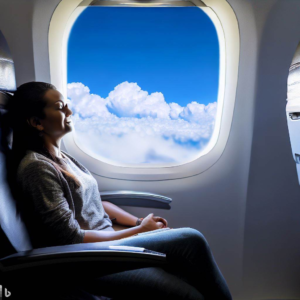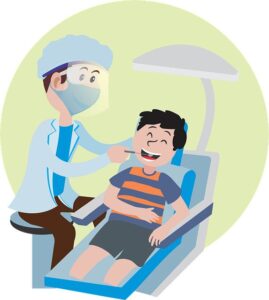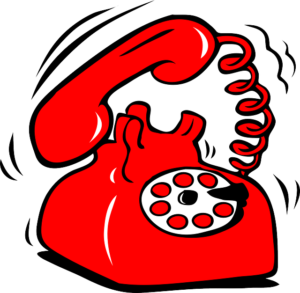Are you someone who dreads flying? Does the thought of getting on a plane make your heart race, palms sweat and stomach churn? If so, you are not alone. According to the National Institute of Mental Health, around 25% of people experience some form of anxiety when it comes to air travel.
The good news is that there are ways to ease your flight anxiety and make traveling a more pleasant experience. In this article, we will explore different strategies for managing flight anxiety.
We will first discuss the root causes of this common fear and why it affects so many people. Then, we will provide practical tips for practicing relaxation techniques both before and during your flight. Additionally, we’ll suggest distraction techniques as a way to shift focus away from anxious thoughts and towards something more calming.
Lastly, we will discuss medication options for those with more severe anxiety symptoms and offer advice on seeking professional help if needed. With these tools in hand, you can be better equipped to tackle your next flight with confidence and ease.
Understanding the Root Causes of Flight Anxiety
 You may be wondering what’s causing your nerves to skyrocket when you step onto a plane, but understanding the root causes of your fear can help you overcome it.
You may be wondering what’s causing your nerves to skyrocket when you step onto a plane, but understanding the root causes of your fear can help you overcome it.
Fear of flying triggers can vary from person to person, but common ones include turbulence, claustrophobia, and the lack of control over the situation. It’s important to identify your specific triggers so that you can work on addressing them.
One effective way to address flight anxiety is through Cognitive Behavioral Therapy (CBT). This form of therapy helps individuals recognize their negative thought patterns and teaches them how to challenge and reframe those thoughts. By identifying and changing these cognitive distortions, individuals can learn how to cope with their anxiety in a more productive manner.
Another approach is exposure therapy, which involves gradually exposing oneself to the feared situation in a controlled environment. For example, taking small flights or sitting in an airplane while it’s parked at the gate can help desensitize individuals to their fear.
Ultimately, confronting one’s fears head-on is often the most effective way to overcome them. Remember that seeking help from a mental health professional or support group can also provide invaluable guidance and encouragement as you work towards overcoming your flight anxiety.
Practicing Relaxation Techniques for a Calmer Flight
To feel more relaxed during your next flight, try practicing some simple relaxation techniques. One of the most effective ways to calm your nerves is by focusing on your breathing. Take deep, slow breaths in through your nose and out through your mouth. This will help slow down your heart rate and bring a sense of calm to your body.
Another technique that can be helpful is visualization. Close your eyes and imagine yourself in a peaceful place, like lying on a beach or walking through a forest. Focus on the details of this place – the sound of waves crashing or leaves rustling underfoot – and allow yourself to fully immerse in it. This can help distract you from any anxious thoughts and bring a sense of calm.
Remember that these techniques may take practice to master, so don’t get discouraged if they don’t work right away. Keep practicing them outside of flights as well, so that they become second nature when you need them most.
With patience and persistence, you can learn how to ease your flight anxiety and enjoy traveling again without fear or stress.
Utilizing Distraction Techniques to Shift Focus
Sometimes when you’re feeling anxious on a flight, it can be difficult to calm down and get comfortable. One way to ease your anxiety is by utilizing distraction techniques that shift your focus elsewhere.
Creative activities like drawing, coloring, or solving puzzles can help take your mind off of the situation at hand. Bringing a book or watching a movie can also be great distractions.
Another helpful technique is mindfulness exercises. Focusing on your breath and being present in the moment can help reduce feelings of anxiety and bring a sense of calmness. Try taking deep breaths in through your nose and out through your mouth, while visualizing yourself in a peaceful place.
This type of exercise can be done anywhere and at any time. Remember that it’s okay to feel anxious, but there are ways to manage those feelings during a flight. Utilizing distraction techniques like creative activities or mindfulness exercises can make all the difference in easing your anxiety and making your flight more comfortable.
So next time you’re feeling uneasy during takeoff or turbulence, try shifting your focus with one of these helpful methods.
Considering Medication Options for Managing Anxiety
If you’re struggling with anxiety on a flight, medication could be an option worth considering to help manage your symptoms. It’s important to note that medication shouldn’t be the first line of defense and should always be used in conjunction with non-medication anxiety management techniques.
Here are some things to consider when it comes to medication:
1. Talk to your doctor: Your primary care physician or a mental health professional can help assess whether medication is appropriate for you and what type of medication may work best.
2. Be aware of potential side effects: All medications have potential side effects, so make sure you understand the risks and benefits before starting any new treatment.
3. Try other methods first: Non-medication anxiety management techniques such as deep breathing, meditation, and exercise can be very effective for some people.
4. Consider lifestyle changes: Simple lifestyle changes like getting enough sleep, avoiding caffeine and alcohol before your flight, and eating a healthy diet can also help reduce feelings of anxiety.
Remember that managing anxiety is not one size fits all – what works for someone else may not work for you. If you do decide to try medication, make sure it’s done under the guidance of a medical professional who understands your individual needs and can monitor your progress over time.
Seeking Professional Help for Severe Anxiety Symptoms
You may want to consider seeking professional help for severe anxiety symptoms during air travel, as it can be incredibly challenging to manage on your own and could potentially worsen without proper support.
Therapy options are available for those who experience fear of flying or other anxiety-related issues. Therapists specializing in cognitive-behavioral therapy (CBT) can provide effective techniques to help you manage your symptoms.
Support groups are another option that can be helpful when dealing with flight anxiety. These groups offer a safe space to share experiences and coping strategies with others who have similar fears. You may find comfort in knowing that you’re not alone in your struggles and hearing success stories from those who have overcome their fear of flying.
Remember, seeking professional help is not a sign of weakness but rather a brave step towards managing your anxiety and improving your quality of life. Don’t let the fear of flying prevent you from traveling or enjoying new experiences. With the right support, you can learn how to cope with anxiety symptoms and gain confidence in yourself and your ability to fly.
Can alcohol be an effective way to calm my flight anxiety?
Alcohol may seem like a quick fix for flight anxiety, but it’s important to understand the science behind its effects. While alcohol can initially make you feel more relaxed and less anxious, it actually increases your heart rate and blood pressure in the long run. This can lead to heightened feelings of anxiety and even panic attacks during the flight.
Additionally, alcohol can dehydrate you, which can exacerbate symptoms of anxiety such as dizziness and nausea. Ultimately, relying on alcohol to calm your flight anxiety is not an effective or safe solution. Instead, consider speaking with a mental health professional or trying relaxation techniques such as deep breathing exercises or meditation before your next flight.
How can I prepare for a long-haul flight to minimize my anxiety?
Prepare yourself for a long-haul flight with these helpful tips to minimize your anxiety.
First, try incorporating visualizations during your flight to help calm your nerves. Envision yourself in a peaceful place or performing an activity that relaxes you.
Additionally, consider medication alternatives such as natural remedies like lavender oil or over-the-counter options like melatonin. It’s important to consult with your doctor before taking any medication.
Remember, preparation is key when it comes to minimizing anxiety during travel.
Are there any natural remedies that can help with flight anxiety?
If you’re looking for natural remedies to ease your flight anxiety, hypnosis, herbal remedies and breathing exercises may be worth exploring.
Some herbs that are known for their calming effects include chamomile, valerian root, and passionflower.
You can find these herbs in supplement form or as teas.
Breathing exercises can also help you relax during a flight.
Try inhaling through your nose for four seconds, holding your breath for seven seconds, and then exhaling through your mouth for eight seconds.
Repeat this exercise several times until you feel more calm and centered.
Remember that it’s normal to feel anxious about flying, but there are ways to manage those feelings so that you can enjoy the journey ahead.
Is it possible to overcome flight anxiety without medication?
Overcoming flight anxiety without medication is definitely possible. Mindfulness techniques and cognitive behavioral therapy are two effective ways to combat it.
Mindfulness involves being present in the moment, focusing on your breath, and letting go of any anxious thoughts that may arise. Cognitive behavioral therapy helps you identify negative thought patterns and replace them with positive ones.
By practicing these techniques regularly, you can retrain your brain to respond differently to flying and ultimately overcome your anxiety. Remember, the journey towards overcoming flight anxiety takes time and effort, but with consistent practice and a compassionate mindset towards yourself, it’s achievable!
How can I deal with anxiety about turbulence during a flight?
If you’re someone who experiences anxiety during turbulence on a flight, there are a few techniques that may help ease your nerves.
First, try practicing breathing exercises to calm your mind and body. A simple technique is to inhale deeply for four counts, hold for seven counts, and exhale slowly for eight counts. Repeat as needed until you start feeling more relaxed.
Additionally, distraction techniques can be helpful in taking your focus away from the turbulence. This could include listening to music, watching a movie or TV show, reading a book or magazine, or even playing a game on your phone or tablet.
Remember, it’s normal to feel anxious at times during flights but utilizing these techniques can help make it more manageable.
By now, you should have a better understanding of flight anxiety and what you can do to ease your worries.
Remember that anxiety is a common experience, and there are many different approaches to managing it. One piece of advice: don’t let your fear of flying ground you for good.
As the saying goes, “don’t throw in the towel.” With some practice and support, you can overcome your fear and soar to new heights. So take a deep breath, visualize yourself soaring through the skies with ease, and know that you have the power to conquer your fears.
Safe travels!





